Baldaré (bahl-DAH-ray)
Origins
Born to the druids in the Age of Salumé, Baldaré has been practicing blood magic since he was young. In his first decade, he was labeled a strong Mage and was taken on by mentors who shared his interest in alchemy and experimentation. His promising education earned him a valuable place in Valara, and by his third decade he became an appointed Elder of the magical arts.A Young Pupil
When Salumé passed, a new Celestial was born to the druids shortly after. She was named Agronan, and Baldaré witnessed the goddess's earliest years. She came under him as an apprentice as soon as her powers manifested, and with his tutelage, Agronan rose quickly in druid society. Though Baldaré held the teachings of Uru in his soul, he found himself fascinated with the young Celestial. Where Salumé had been a strict leader, Agronan was soft and compassionate. Her care for animals and all living things spoke to him, and though the differences between him and the young maiden were numerous, their bond grew over the years into a sort of romance. For the most part, Agronan's beliefs and her role as Celestial were what kept him from courting her. There had always been disagreement within Valara over the gods, but when Agronan became fertile and ready to be mated, a cordial disagreement surged into civil discord. As an Uru sympathetic, Baldaré used his voice and influence in hopes to spark a reform, all while the young Agronan advocated for peace. We cannot say they were truly rivals, but Baldaré, being Agronan's mentor, had a way of butting heads with the Children of Ishtara articulately and with finesse. What we can say is that Agronan proved to be a charismatic speaker in her own right. By the incredibly young age of twenty-three, Agronan had more than tripled her following and erected a temple dedicated to Ishtara. But that's not to say that the worshippers of Uru were left with no place in society. Not yet.Mated to the Goddess
Entering into his fifth decade, Agronan approached Baldaré with a proposal: She believed wholeheartedly that the gods would never want to see their children separated over a clash of religious ways, and she insisted that their mated partnership would serve to calm domestic tensions. And Baldaré--though mating with the female was the last thing he ever envisioned working out--had no desire to refuse her. They were mated upon the following winter Solstice, and the soul-bonding rites took place immediately after. Baldaré considered this time in his life a rather peaceful and happy one. Not only did Agronan bring him wealth and heirs--something most Druid males desire--his soul-bond to her granted him power he had not tasted before. Agronan's gifts were shared with him, and Baldaré spent time mastering these new arts. He bent the elements, spoke to wild animals, and conjured at such higher scales than he had before. A few more decades saw Baldaré's power grow so avidly that his curious mind led him to dabbling in darker things like necromancy. He even took it upon himself to teach his wife and children the necromantic secrets he'd uncovered, and that was what sparked a great outcry from the Children of Ishtara.A Clan Cast Out
As his mate, Agronan had no ill will toward Baldaré, but as spiritual leader, such pressure was laid on her to do something about how far her husband had pushed the boundaries of nature. She could no longer justify the ways of the Uru worshippers, and so she presented an ultimatum to the Uru worshippers -- cease their ways and conform or leave Valara forever. And though it meant that Agronan and her family would take their leave, she stood by her mate even as their own people cast him out. From then on, Baldaré's role shifted drastically. He brought his family and those who left along with him to an unclaimed territory in the west. He took on the mantle as High Lord and led his people into the unknown.Fighting Giants
Though the land that Lord Baldaré claimed officially belonged to no one, there were some indigenous tribes that insisted the elves were trespassers and blasphemers. Tensions with their Ithunil neighbors quickly escalated into war, and with Agronan's steadfast help beside him, Baldaré fought his unexpected enemies off. But the conflict grew more foul when Baldaré learned that the Ithunil were widely considered to be the true and blessed children of Uru. They fought with the gifts of their god, and their chieftains were highly blessed by the Father of Spirit and Shadow as well. They kept sieging Baldaré's home, leaving more and more crumbled buildings with each battle. Peace could not be negotiated, and so Baldaré was compelled to take drastic measures. He crafted an object now known as the Chalice of Baldaré, and with it he bargained with his god. A test of true faith and power, the Chalice granted him gifts that had never been given to any Uru worshipper before. Baldaré became the first of a race of Dark Elves, and though his bargain cost him his Celestial bond with Agronan, he gained the power to crush his tribal enemies. Before him, no one had learned nor wielded dark magic on such a high scale--and because of his avid mind, Baldaré not only kept his power but expanded it. The land suffered in response to his extensive projects, and over the course of the next century, the western region faded into a wasteland.Nothing to Lose?
At some point Baldaré came to be known as a King--though such little changed in his regime. By his one hundred and twentieth year, a new Ithunil chieftain ascended. We know such precious little about Kraden, but we believe that he and his people could no longer afford the widespread famine that war against King Baldaré had brought, and that that was his motivation to start advocating for peace. He hailed the Dark Elf King and called for a negotiation that would jump-start a new era, but by that point, King Baldaré held no care for the Ithunil. Nearly a century fighting them, trying to broker his own form of peace, had yielded him nothing and so he was far too jaded to believe in this new chieftain of Githal. But, his wife and their two eldest sons, Drúnn and Heluvian, convinced him to let them speak with the chieftain on their kingdom's behalf, and so peace was finally achieved. Or so he thought. Over the course of another two decades, Baldaré ruled so unaware of his wife's infidelity. Kraden had been bedding her regularly since their alliance was formed, and it was his loyal son, Drúnn, who brought it to attention at long last. Furious, Baldaré declared war against this Kraden, and in a slight interest to spare resources and lands from suffering more under the vice of dark magic, Baldaré agreed to a personal duel within the boundaries of his own home. He faced Kraden down at the top of the central spire and killed him brutally. His wife wept over Kraden's corpse, and tried to raise him back to life. Baldaré had been prepared for it, though, and stopped the ritual his wife began. Using the Chalice, he banished Kraden's soul to Oblivion and threatened the same fate to anyone who deigned to overthrow. What Baldaré had not been prepared for was for Agronan to rise against him and fight for the soul of her lover. A long and grueling battle followed, and though many details of the clash remain mysterious, we do know that at some point Baldaré wielded the Chalice against his own mate. We historians widely assume that the dark spell worked and cast Agronan's soul into Oblivion as well. What became of Baldaré, though, no one can say for certain. We mostly rely on legend to shape our theories, and our theories assume that Baldaré vanished right along with his wife.The Sacred Vessel
With the reign of King Baldaré come to an end, Drúnn--the eldest son--followed in his father's steps. He drank from the Chalice and became the next powerful dark elf King, the beginning of a long-standing tradition now expected of every Heir of Baldaré.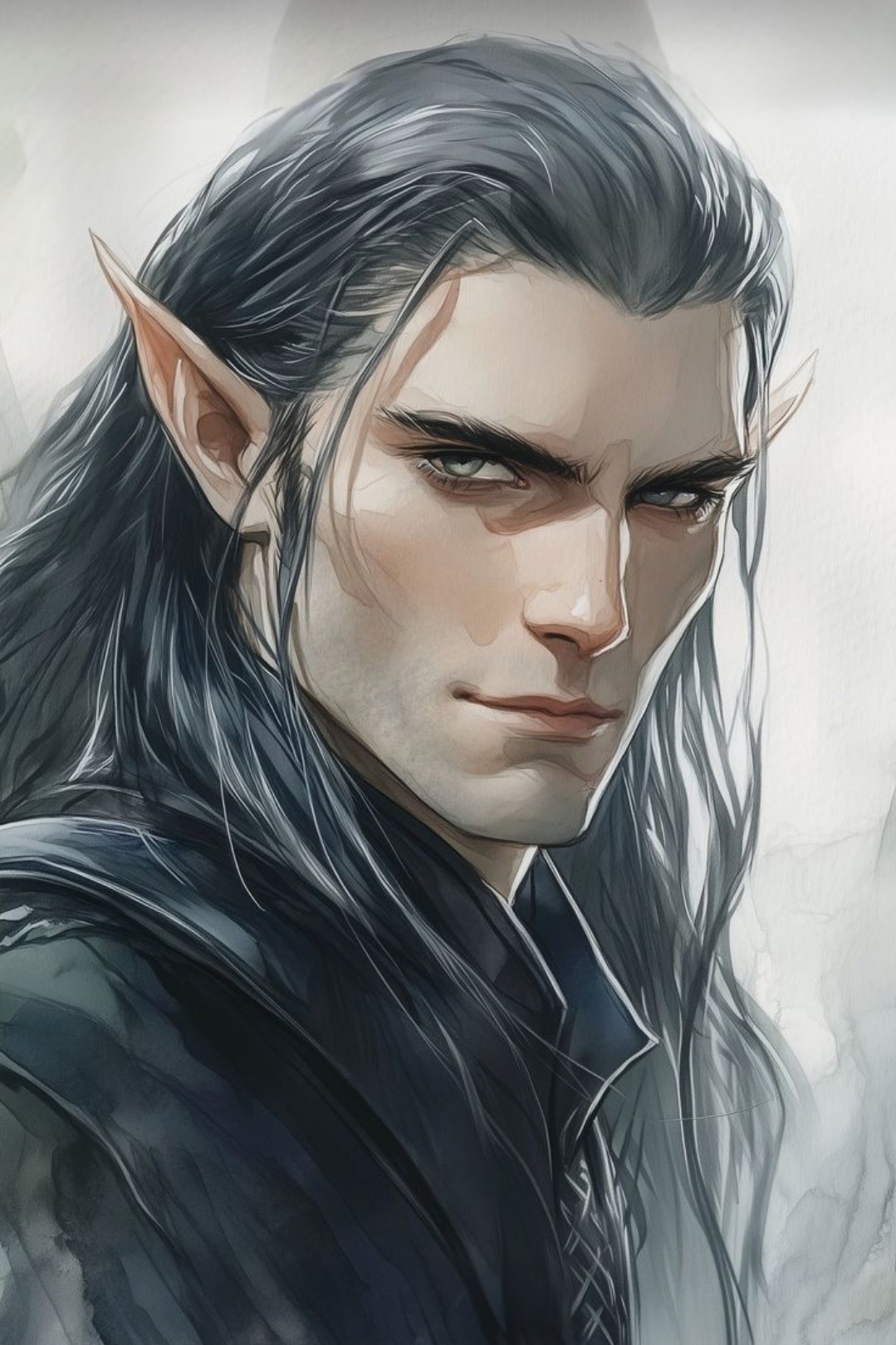
Mage, husband, and father... High Lord Baldaré paid a heavy cost to protect his own.
Fun Facts
- King Baldaré appointed his two eldest sons to aid his rule. Prince Drúnn and Prince Heluvian were both born with their mother's magical gifts and their father's stoic determination. Baldaré relied on them so much that they came to be known as his two Eyes. They both went on to sire and govern large Houses of their own. House Baldaré, House Drúnn, and House Heluvian make up most the entirety of the dark elf population today--which is what we believe is the basis for the modern Éolnir's crest, the Triple Eye.
- We have discovered that the Chalice of Baldaré does not grant everyone who drinks of it power. Rather, the cup merely presents a test of worthiness. Those who find favor prevail and those who do not go straight to their god, Uru, never to return.
- There have been a few Queens of Eolnir since Baldaré's time, the most recent being Queen Reina. She drank from the Chalice at fifteen--an incredibly young and bold age for such a risk. She survived then went on to strike another peace accord with the Ithunil.
Spouses
Agronan
(Mate)
Siblings
Children
Musical Vibes
Darkest Night by Tony AndersonRemove these ads. Join the Worldbuilders Guild

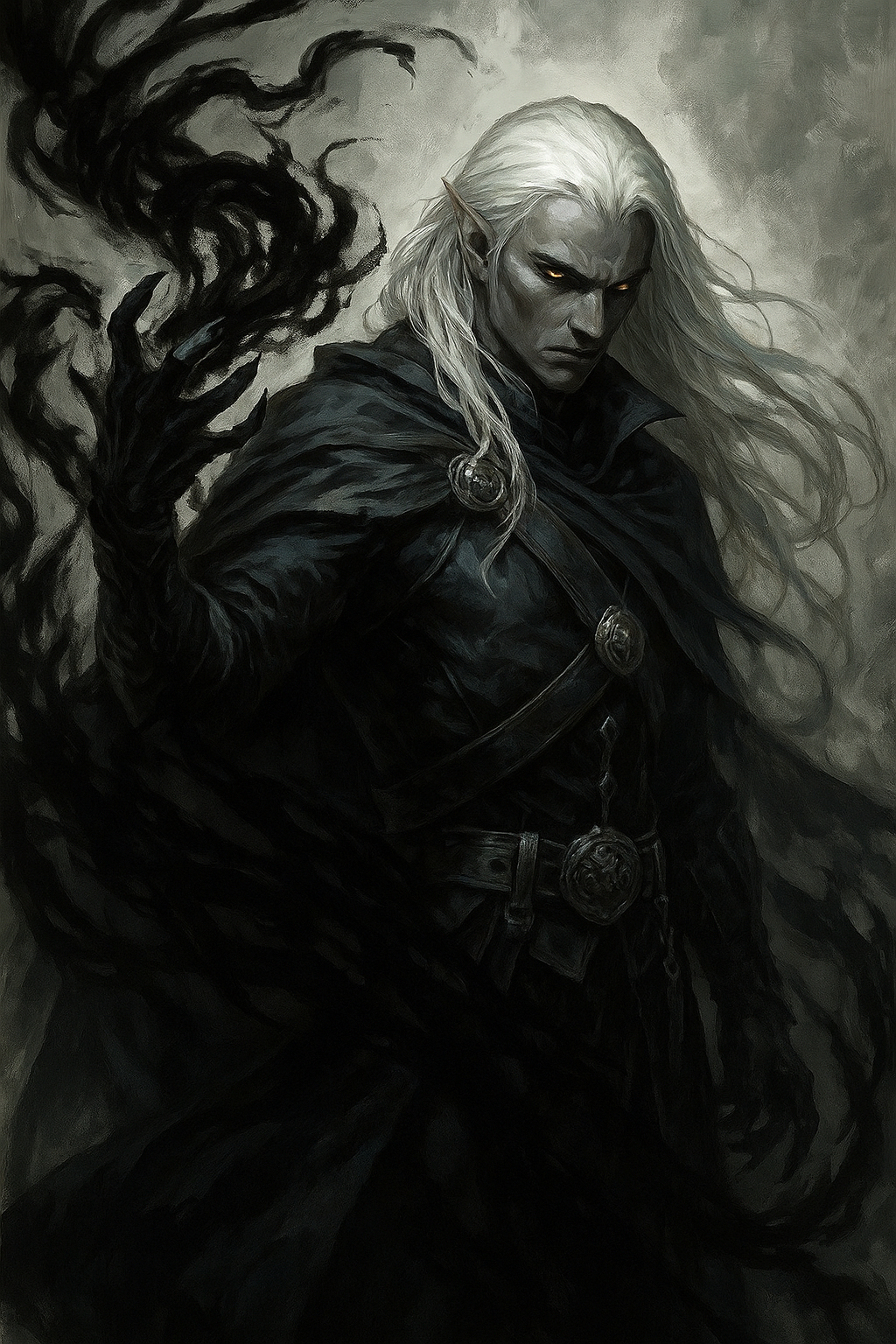
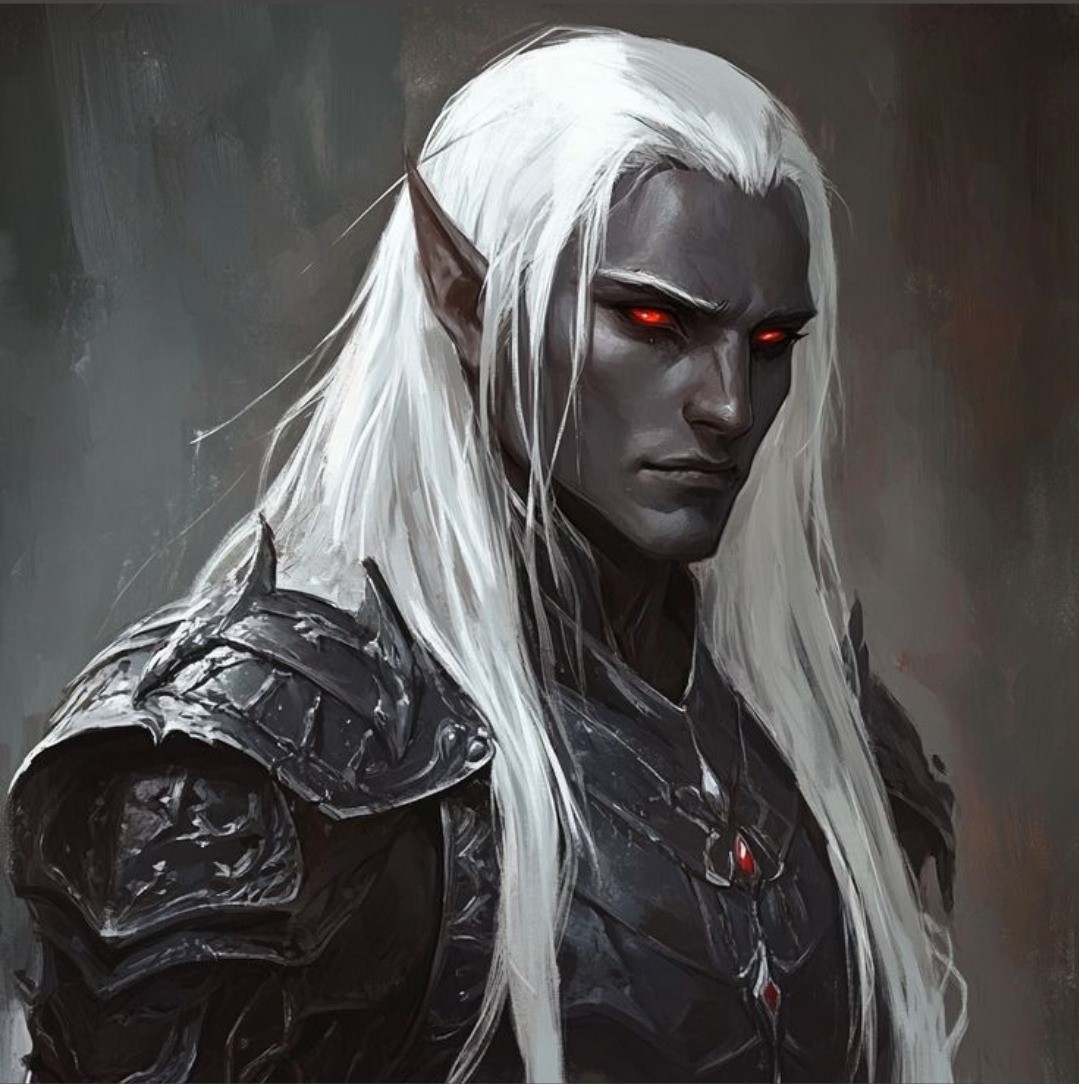
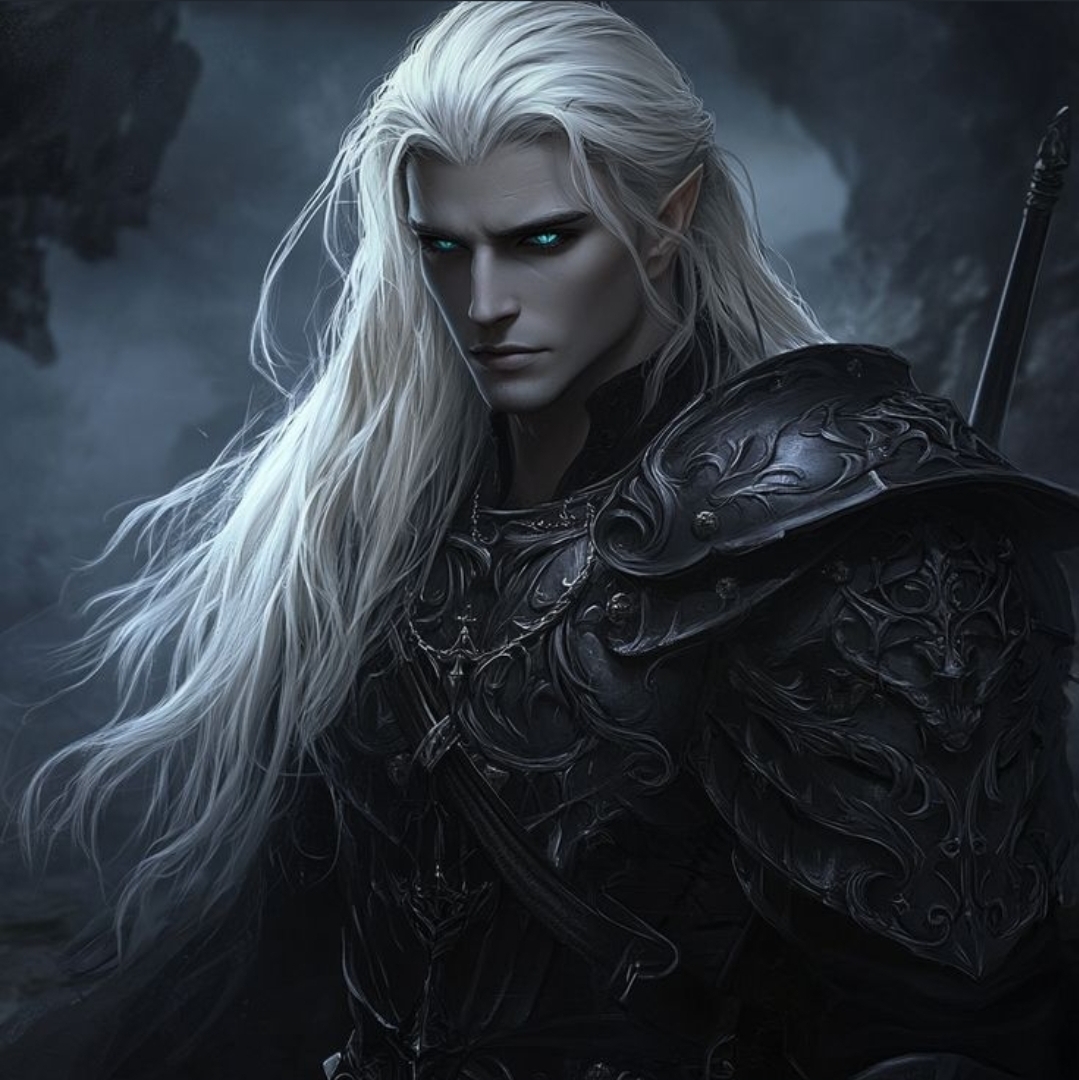
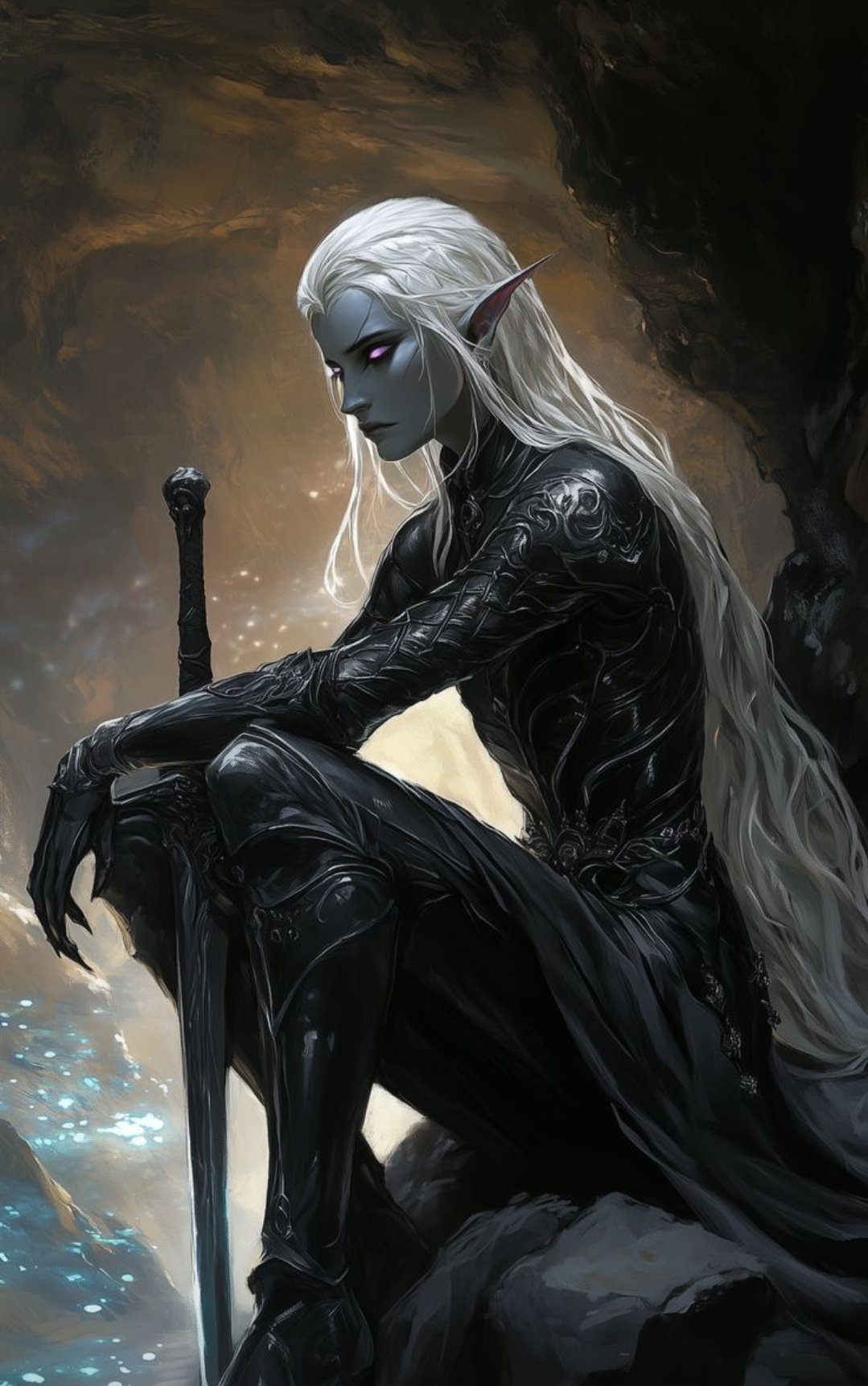







Comments